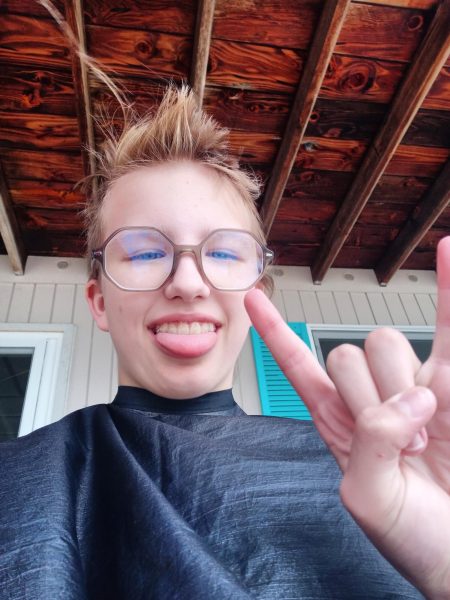In the last few months, many students have noticed an extra zing in their otherwise predictable fall schedules. This is thanks to the new mini-seminar program headed by Academic Dean Hans de Grys that hopes to provide a low-stakes environment for students and teachers to explore their passions. Accordingly, five one-semester, credit/no credit classes were offered this fall to introduce the project. They meet half as often as a usual class (every fourth school day), and are open to all grade levels, enriching students’ semesters without adding too much work.
With no homework and no grades, the seminars seem like the ideal class. Still, despite their favorable structure, their addition to the Lakeside curriculum plan appeared random to many: Why now? Why this?
As Mr. De Grys explains, the seminars were developed in response to student feedback collected last year. Specifically, many Lakesiders wished the school offered classes that were specialized, lacked homework, or that met less often to appeal to those with busy schedules. As opposed to addressing these requests individually, Mr. de Grys instead decided to combine all three. He asked teachers and administrators to come up with proposals for the seminars we know today.
The program was launched quickly compared to the normal course-approval timeline. Normally, the curriculum committee meets in October the year before to decide on next year’s courses — for example, all normal classes for the 2024-25 year were already decided this October. However, eager to implement this new idea, Mr. de Grys decided that mini-seminar teachers only had the month of August to prepare their courses.
Today, the seminars are in full swing. Considering their novelty, most of them are small, with an average of 3-5 students per class. Still, Philosophy of Literature & Life, taught by Dr. Bynum, is just as large as most standard electives at Lakeside with a class size of 15. Moreover, the seminars are most popular among 9th and 10th graders. As Mr. de Grys predicted, most seniors couldn’t adjust their more unique, selective schedules to fit the classes.
So far, though, the opinions of those in the program appear favorable. Several administrators who are leading courses, such as Dr. Bynum and Mr. de Grys, have expressed nostalgia for actually teaching students again. “I’ve been really enjoying it a lot,” said Mr. de Grys, who, before becoming Lakeside’s Academic Dean, spent 18 years as a full-time teacher. Both administrators also credit the low time commitment of the mini-seminars with making teaching the class more accessible, showing how the policy has benefitted both students and non-teachers.
As the first semester of mini-seminars draws to a close, the second round is gearing up. New proposals for courses from teachers were submitted in November. At the beginning of December, the teachers found out if they were teaching the class or not; those accepted will begin their courses in January.
If the program goes well, though, future years might be different. For instance, Mr. de Grys discussed the possibility of student co-teachers. “If we continue this program we’ll definitely be looking for ways for students to collaborate — teaching a course or co-teaching a course,” commented Mr. de Grys. “We’d still want them to partner with an adult on campus.”
All in all, it looks like the mini-seminars are off to an excellent start. Stay tuned for the January 2024 selection!

